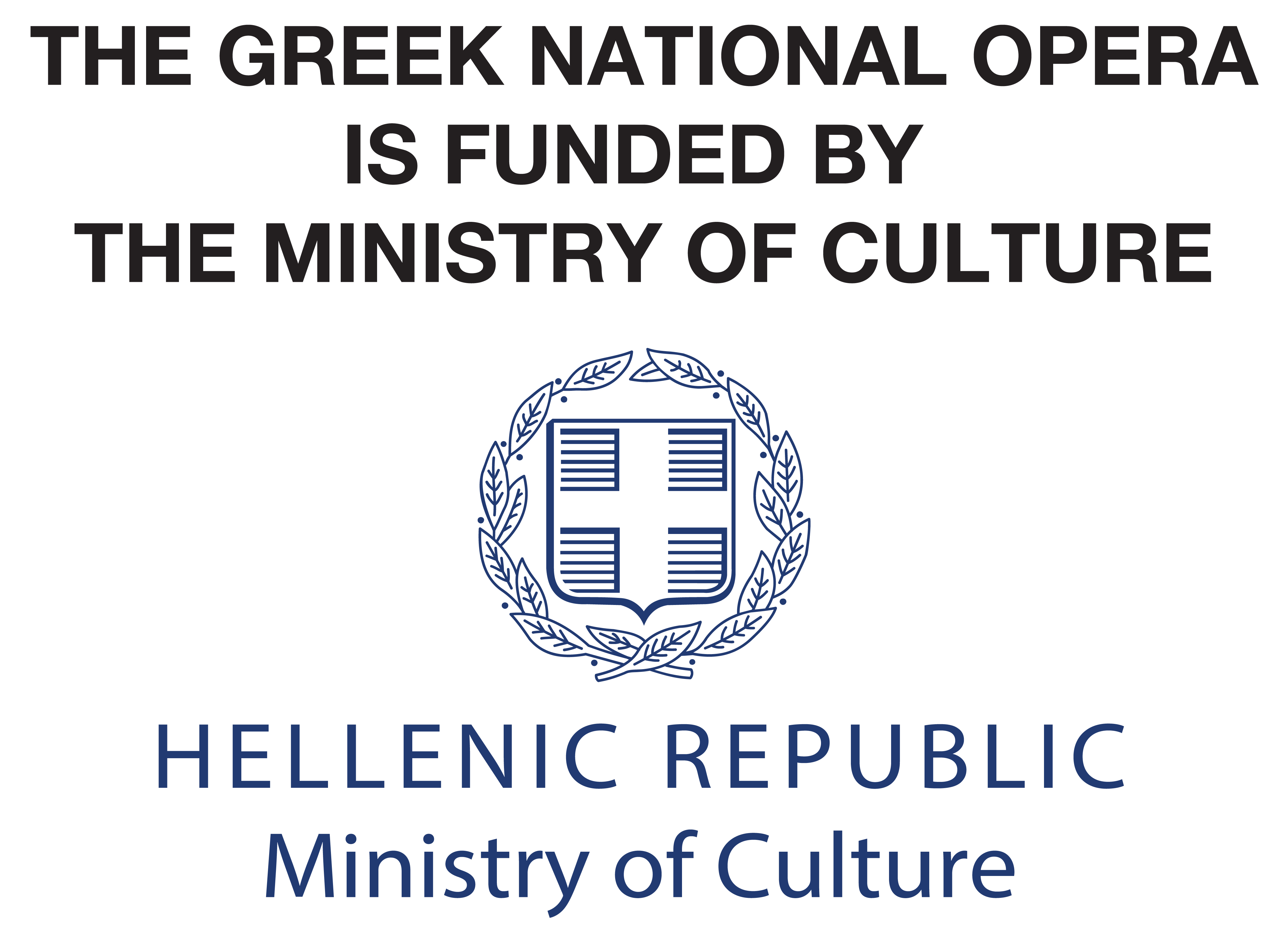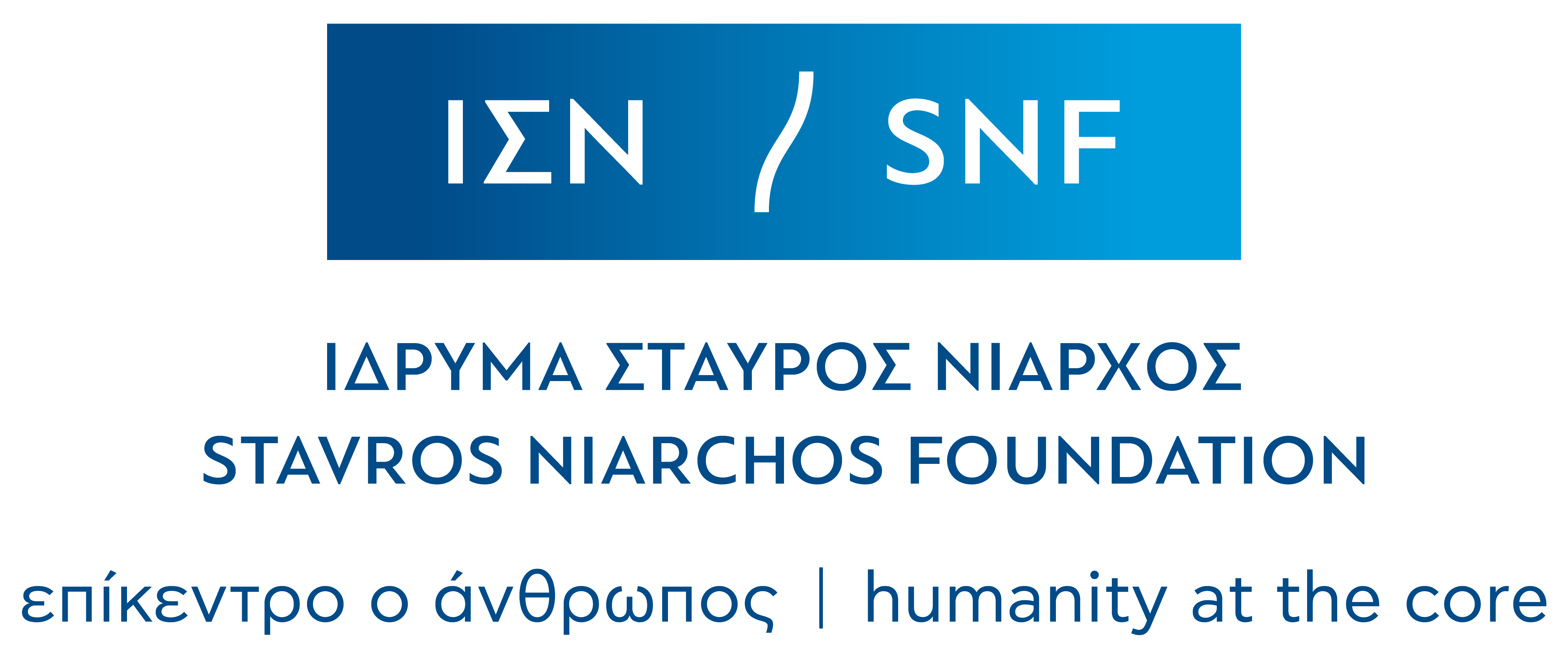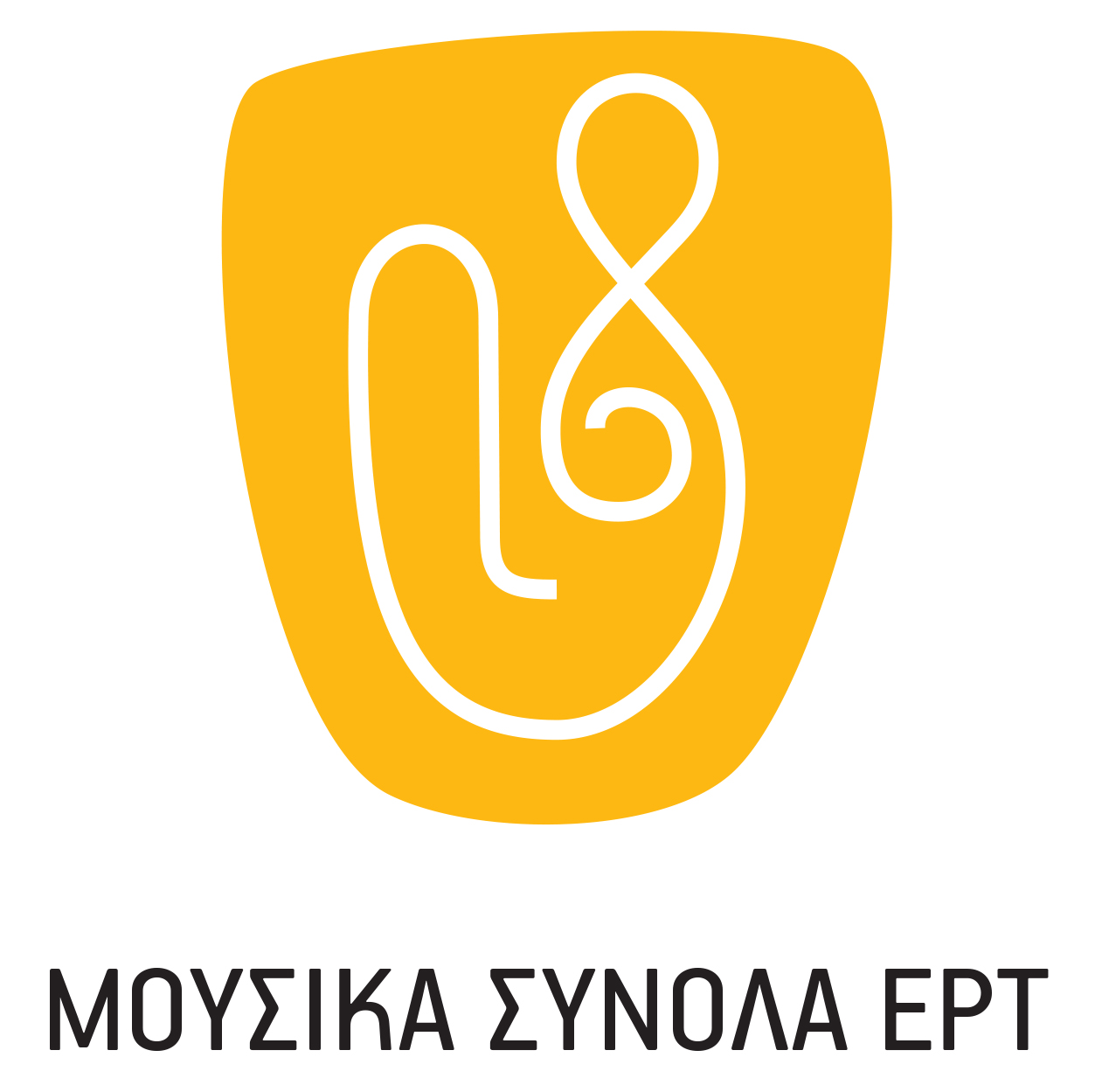
Alternative Stage Founding Donor

Major Sponsor of the Greek National Opera

A co-production


The legendary war revue Bravo Colonel� by Alekos Sakellarios and Dimitris Evangelidis, originally staged in 1940 as a direct response to the Greco-Italian War, is coming to the Alternative Stage of the National Opera at the SNFCC for two unique performances on 25 and 26 October 2025, in co-production with ERT. Bravo Colonelo is revived through a new arrangement by the conductor of the ERT Choir, Michalis Papapetrou, and will be performed by the ERT Contemporary Music Orchestra under his musical direction. The directorial supervision bears the mark of Alexandros Efklidis.
The new arrangement of Bravo Colonelo draws on ERT's historical archive and the revue's original version, respecting its historical value, in an effort to showcase the work's lasting significance. As Michalis Papapetrou notes, �The arrangement was based on Theophrastos Sakellaridis' work, as we've known it from his operettas and song recordings. Its lyrical and theatrical character has been preserved, while the new arrangement highlights the liveliness, humor, and enduring Greek spirit of his music.�
The war revue Bravo Colonelo was first performed at the Aliki Theatre - later known as the Mousouri Theatre - and enjoyed great popularity, as its humour and music encouraged audiences and satirized fascism. It featured established music theatre actors of the time, such as Orestis Makris, Kyriakos Mavreas, Marika Krevata, Kostas Doukas, and Marika Nezer. Its music, original yet often borrowing from popular songs of that era, was composed by Theophrastos Sakellaridis. In 1979, the production returned to the stage and was also broadcast on TV through ERT (the Hellenic Broadcasting Corporation), curated by Alekos Sakellarios and Giorgos Katsaros, featuring top artists of the time, such as Anna Kalouta, Giannis Gionakis, Giannis Vogiatzis, Giannis Parios, and others.
Bravo Colonelo, one of the first war revues staged at Athenian theatres after the outbreak of the Greco-Italian war, captures the contrasting climate of the time in an almost celebratory way. It depicts people, both at a loss and courageous, as if in a state of constant readiness, resisting the advent of fascism, and trying to fight the fear of war with humour and satire.
Its writers, Alekos Sakellarios and Dimitris Evangelidis, described it as a � satiric humorous story about war� and joined forces with Theophrastos Sakellaridis, who used both original and borrowed music, as was customary in revues at that time, to accompany it. In Bravo Colonelo, laughter and music turn into means of resistance and consolation.
Through numbers, patter, and songs, women and men at the rear hide their anxiety and embarrassment with joyfulness, irony, and self-sarcasm, while also adding a touch of emotion and national pride. The fascist enemy is ridiculed, while the Greek soldiers' struggle and daily lives are inevitably presented in an idealized manner, much like how the audience imagined and hoped that soldiers were living at the front.
The citizens' adaptability to new circumstances, volunteering, and solidarity are depicted onstage, alongside the theatre people's self-referentiality. The socialite movement takes on a new form, while imposed blackouts and war discussions create new conditions for flirting to thrive. Typical revue characters, such as the drunkard, send their own antiwar message to an audience that continues to pack theatre halls despite the fear of war - or maybe because of it.
Bravo Colonelo ultimately serves as a live reminder of music theatre's power to transform satire into a weapon and theatre into a refuge. Most importantly, it highlights the special condition when the stage becomes one with the stalls under the weight of history, amidst a climate of uncertainty combined with national fascination and rallying.
The sets and costumes are designed by Alexia Theodoraki. Fotis Diamantopoulos is responsible for the movement, and Christos Tziogkas created the lighting design. Katerina Karra and Apostolos Poulios served as scientific advisors for this production.
Cast: Thanasis Alevras, Giorgos Glastras, Eleni Calenos, Raff Kritoulis, Ariadni Mersinia, Lydia Fotopoulou, Galini Chatzipaschali
Featuring the ERT Contemporary Music Orchestra
Illustrations
Archives of Historical Documents, Historical and Ethnological Society of Greece - National Historical Museum
Brief biographical notes
Giorgos Glastras
Born in Thessaloniki. He studied at United States International University in San Diego, Mountview Theatre School in London and Royal Academy of Music's Master's Programme in Musical Theatre. He is a recipient of the Sir Ralph Richardson Award. He is also a graduate of the Law School of Aristotle University of Thessaloniki. He has collaborated with National Theatre of Greece, National Theatre of Northern Greece, Athens Epidaurus Festival, Onassis Stegi, Megaron - The Athens Concert Hall and Thessaloniki Concert Hall, Neos Kosmos Theatre, Amore Theatre, Greek Art Theatre Karolos Koun, Piraeus Municipal Theatre, Experimental Stage of �Techni�, etc, and with directors Yannis Houvardas, Thomas Moschopoulos, Robert Wilson, Peter Stein, Vasilis Papavasiliou, Yannis Kalavrianos, Nikos Mastorakis, Nikaiti Kontouri, Yannis Moschos, Akillas Karazisis, Nikos Hatzopoulos, etc. He has also collaborated with Deutsches Theater, Piccolo Teatro, Teatro Olimpico, Shakespeare's Globe Theatre, Sadler's Wells, Royal Drury Lane Theatre, Riverside Studios, Edinburgh Festival, etc. In cinema, he has collaborated with Costa-Gavras, Yelena Popovich, Steve Krikris, Panos Karkanevatos, Alexis Tsafas, etc, and on television with Ismail Sahin, Tasos Psarras, Minkie Spiro, in series for Hellenic Broadcasting Corporation, ARD1, Channel 4 and the BBC.
Eleni Calenos
Internationally acclaimed soprano who is capturing critics' and audiences' admiration for the beauty of her voice and her dignified characterisations. Born in Thessaloniki, she obtained a cello diploma from the Municipal Conservatory of her native town and a classical singing diploma from the National Conservatory of Athens. She completed her studies in Vocal Performance with a master's degree from Queens College City University of New York, and at the Opera Institute of Boston University. Calenos performs worldwide, but mainly in USA and Europe. Her operatic repertoire includes more than thirty leading roles. She's equally consummate in the oratorio, symphonic, concert and art song repertoire that range between the Baroque era and contemporary music. For a number of years, Calenos performed in Greek music ensembles with renowned artists. She has recorded the operettas War in War and The Cretan Girl with the Greek National Opera, the opera Zanetto by Mascagni with Odyssey Opera of Boston, and George Tsontakis' Mirologhia with the Albany Symphony (KOCH International Classics). She resides and teaches in Athens since 2020.
Raff Kritoulis
Born in Athens. He graduated with honours from the Drama School of the Theater of Changes in 2022 and holds a Diploma in Voice (2021). He has been active on the Greek music scene since 2011 and began acting in theatre in 2017. Since then, he has participated and starred in musical and non-musical productions, including Jesus Christ Superstar (2018, dir. Themis Marsellou), The Phantom of the Opera (2020 and 2023, a production featuring West End performers, dir. Steven Barlow), Take Me Home (2022, dir. Dimitris Malissovas), Geia the Musical (2022/23, dir. D. Malissovas), My Fair Lady (2024, dir. Th. Marsellou), the Disney100 anniversary concerts (2023, featuring West End performers, as a singer and vocal coach), the children's opera I flogiki magera (2024, dir. Antonis Morgan), etc. He has worked as a vocal coach since 2020, teaching at conservatories, theatre schools and privately. He has attended numerous seminars on acting, movement, singing instruction and vocal rehabilitation in Greece and abroad. He has also a background in ballet, contemporary and jazz dance. He plays the piano and the electric bass.
Alexia Theodorakis
Set and costume designer. Born in Athens, she studied classical guitar at Apollonio Odeio, drawing and painting with painter Giorgos Bournazakis and translation at the French Institute of Athens. She continued her studies at the Academy of Fine Arts of Venice and graduated from the Department of Set and Costume Design. She has been working in theatre, dance theatre, opera, and cinema, in Greek and international productions since 1998. She has collaborated among others with Alexandros Efklidis, Katerina Petsatodi, Akillas Karazisis, Themelis Glynatsis, Rodula Gaitanou, Maria Gyparaki, Thodoris Gkonis, Tasos Rantzos, Fotini Baxevani, Dimitris Sklavos, Dimitris Piatas, Avra Sidiropoulou, Kostas Papakonstantinou, Angeliki Papadatou, Giorgos Petrou, Konstantinos Arvanitakis, Enke Fezollari, Tasos Pirgieris, Takis Touliatos, Vasilis Bisbikis, Vangelis Papadakis, Victor Arditti, Yannis Sakaridis, Konstantinos Fragopoulos, Michalis Mathioudakis, Mahdi Fleifel, Michalis Sionas, Nikoleta Filosoglou, Pantelis Pagoulatos, Yannis Stankoglou, Varvara Douka, Stratoula Theodoratou, Vasilis Mavrogeorgiou, Iris Fegerl, Lefteris Haritos, Manolis Dounias, Emilios Cheilakis. She has worked for National Theatre of Greece, Municipal and Regional Theatres of Kavala, Serres, Agrinio, Veria, Corfu, and Roumeli, Athens Epidaurus Festival, Thessaloniki Opera, Armonia Atenea, Thessaloniki Concert Hall, Greek National Opera, GNO Alternative Stage, Olympia City Theatre �Maria Callas� and Teatro Verdi (Trieste).
Galini Chatzipaschali
She grew up in Alexandroupolis. She graduated from the Drama School of the National Theatre of Northern Greece in 2000. She has collaborated with National Theatre of Northern Greece, Municipal and Regional Theatres of Serres, Komotini, Agrinio, and Kozani, National Theatre of Greece, Stigmi Theatre Organisation, Poreia Theatre, Onassis Stegi, Neos Kosmos Theatre, Piraeus Municipal Theatre, Greek Art Theatre Karolos Koun, Vretania Theatre, Alsos Theatre, Athens Epidaurus Festival, etc.
Lydia Fotopoulou
Born in Kavala. She grew up and studied in Thessaloniki. After graduating with honours from the Drama School of the Thessaloniki State Conservatory in 1977, she began working with the National Theatre of Northern Greece, where she remained until 1991. Over the next few years, she collaborated with National Theatre of Greece, Experimental Stage �Technis�, Amore Theatre, Neos Kosmos Theatre, Municipal and Regional Theatre of Patras, etc. She had the good fortune to work with wonderful directors, colleagues and collaborators on plays from the classical and contemporary repertoires. She won the Marika Kotopouli Award for her role as Nora in Ibsen's A Doll's House (2002), directed by Nikaiti Kontouri and the 3rd Athinorama Audience Award for her role as Stepdaughter in Pirandello's Six Characters in Search of an Author, directed by Dimitris Mavrikios. She won the Iris Award for Best Supporting Actress for her role in Dora Masklavanou's film Polyxeni.
Thanasis Alevras
Greek actor born in Ioannina in 1979. He graduated from the Drama School of the Greek Art Theatre Karolos Koun. He has been active in classical and contemporary theatre and television for 25 years. In 2008, he was awarded the Dimitris Horn Award for his role in the play Heroes by Eleni Gasouka. In 2013, he won first place in the charity television competition show Your Face Sounds Familiar, donating the proceeds to the Actors' Home.
Ariadni Mersinia
�ezzo-soprano born in Athens. She received a diploma in solo voice with unanimous honours and first prize from the Klassiko Conservatory of Cholargos under Rossitza Troeva, with whom she continues to study. She also attends courses in melodrama and role interpretation with Alexandros Efklidis. She studied piano, percussion and classical and contemporary dance at the Dora Mitropoulou - Jasmi Sarla Dance School. She graduated with honours from the Department of Education of the University of Thessaly, choreographing the musical dance event Interactions for the 20th anniversary celebrations under the guidance of Eleni Tsompanaki. As a member of vocal and dance ensembles, she has performed in concerts at Megaron - The Athens Concert Hall, National Theatre of Greece and in 2023 Eleusis European Capital of Culture.
Christos Tziogas
Born in Thessaloniki, Northern Greece, where he began working professionally as a photographer and lighting designer in theatre for dance and music productions. He has collaborated with numerous artists and has designed the lighting for numerous productions for the Greek National Opera.
Michalis Paparetrou
Conductor and pianist, born in Athens. He studied piano and music theory at the Hellenic Conservatory and musicology at the Department of Music Studies of the National and Kapodistrian University of Athens. He continued his studies at the University of Music and Performing Arts in Munich (Bruno Weil's and Klaus von Wildemann's class). He has conducted the Munich Symphony Orchestra, the Bad Reichenhall Philharmonic Orchestra, the Ingolstadt Strings Orchestra, the Heilbronn Strings Orchestra, the National Symphony Orchestra of the Hellenic Broadcasting Corporation, the Orchestra of Colours, the Greek National Opera Orchestra, etc. Qualifying in the top eight, he was distinguished among 217 participants at the Dimitri Mitropoulos International Competition for conductors. He has collaborated with the European Opera Centre, the Greek National Opera, the Athens Epidaurus Festival, the Athens Concert Hall, the Thessaloniki Concert Hall, the Armonia Atenea, etc.
Alexandros Efklidis
Born in Thessaloniki, he studied at the School of Drama (Faculty of Fine Arts) of the Aristotle University of Thessaloniki, where he also completed his PhD. �e continued with postgraduate theatre studies at the University of Paris III. He has taught at the School of Drama (Faculty of Fine Arts) of the Aristotle University of Thessaloniki, at the Department of Music Science and Art (University of Macedonia), at the Department of Theatre Studies (University of Patras), as well as at the Drama Schools of the National Theatre, Athens, and the National Theatre of Northern Greece, where he also worked as a repertoire consultant. As a music theatre director he has worked with the Greek National Opera, Athens Epidaurus Festival, Neukölln Opera in Berlin, Thessaloniki Concert Hall, Opera of Thessaloniki, �Beggars' Operas�, Municipal Theatre of Patras, Onassis Cultural Center, etc. He has directed works of classical repertoire, as well works of contemporary composers, such as Giorgos Koumendakis' The Murderess (Greek National Opera, 2014). He was Artistic Director (2017-2021) and Head of Programming (2022-2025) of the Greek National Opera Alternative Stage.











